Can we find the line between ambition and obsession?
The Bear, Perfect Days and Welcome to Hyunam-Dong Bookshop
(This may contain spoilers for The Bear, Perfect Days and Welcome to Hyunam-Dong Bookshop)
There's no lack of stories about ambition. It is probably one of the most common plots in Hollywood: characters in search of fame, becoming an athlete, actor or musician, building companies, getting rich on Wall Street, or even the mafia. Villains are ambitious, but so are heroes and main characters. We love stories of people aiming high, suffering through tribulations but finally getting there.
Typically, they are aspirational stories, but they can demonstrate ambition's destructive potential. We particularly enjoy when characters take their ambitions to the extreme. Stories in which they end up losing friends, family, others' respect and sometimes even getting involved in violent efforts to reach their goals.
But there's a problem when this is the dominating narrative we watch, read, and hear. It normalizes the strive, the constant search for that special something. Because even if we get where we want to be, unlike in a movie, our story doesn't end there. That means we will soon want something else, never satisfied. Where is our happy end after all?
The truth is that in the real world there are none. All moments have both positive and negative elements. This constant quest to find that job, relationship, travel, or experience that will finally make us happy will only leave us burned out, stressed, afraid of mistakes, and away from what actually restores and gives meaning to our lives.
When ambition blinds you
The Bear tells the story of Carmen, a young and ambitious chef who moves back to his home town of Chicago to take over his family business: a sandwich store called The Beef. After a lot of family and work drama, he turns The Beef into The Bear, a fine dining restaurant.
Throughout the three seasons, especially the last one, Carmen's ambition to be the highest-level chef he can be only results in him being horrible to work with. He is so focused on having the finest restaurant that he doesn't care about anything else happening around him. He mistreats his employers, both positive and negative reviews feel the same to him, he doesn't have enough time for his family and what is happening with them, he pushes his girlfriend away.
Throughout season three, we see how his past work experiences have shaped him into the person he is today. Before returning to Chicago to work at The Beef, Carmen worked at a top restaurant in New York. There he was continually bullied and harassed by his boss and had what seemed like a traumatic experience.
This and other experiences affected how he saw food and restaurants. The constant attacks and pressure made Carmen distrustful and a perfectionist. He is obsessed with cooking and cannot have healthy relationships, or a life outside the kitchen.
Unfortunately, his drive to become a chef made him more likely to experience toxic working environments and harassment. Because being ambitious means doing anything to reach a goal. It means staying in toxic places is not a problem. We just accept whatever comes our way, thinking it's the price we have to pay.
Also, if we are so focused on a goal, we will only dwell on ourselves and what we can change in us to get there. That can easily lead to self-hate, because we can't always perform as we hope to be. As we aspire to be. Add a toxic boss and you have a recipe for disaster.
Without ambition, what would our lives be like?
Oscar-nominated Japanese movie Perfect Days shows the daily life of a public bathroom cleaner called Hirayama. The movie is not about a grand journey from someone who had a job almost everyone would consider a bad job, to becoming something else. It shows a simple, contented life.
When Hirayama is working, he enjoys every day moments. Either by visiting a shrine during lunch and photographing the trees there, by interacting with the few people who will talk to him, or noticing the beauty of the city. In his free time, his activities include listening to old cassettes, taking care of plants, reading, choosing his favorite photos, and visiting restaurants and other communal places.
Still, his life is not without problems or conflict. Because of his job, he sometimes gets mistreated and has been cast aside by his sister.
There is a valuable lesson in this movie about service jobs not being intrinsically bad, the problem is the lack of status and the social aspects associated with them.
He is certainly content with his job and his routine and he does meet and interact with a lot of people daily. However, we can tell that he would like to have more and stronger relationships, which the prejudice against his work doesn't really allow him to have. That is the tragedy of it.
More often than not, our ambition comes from how we want others to perceive and treat us. It is really tricky to break from this kind of thinking because it can have real life consequences for anyone who chooses a simpler life. In this case, Hirayama's sister views him unworthy of spending time with her and his niece. This of course has a profound impact on his life.
How do we fix our ambitions?
The Korean book Welcome to the Hyunam-Dong Bookshop is probably my favorite book this year so far. It tells the story of Yeongju, a woman who after burnout and divorce follows her childhood dream of opening a bookstore.
Initially, she sees the bookstore as something that will fail, as a way she can spend two years alone reading to cure her burnout. Eventually, though, after each new person enters her bookstore and life, she recovers her drive.
Although Yeongju is shown throughout the story as someone who works hard and is ambitious, her ambition isn't to be rich or successful. She is not looking for perfection anymore, as Carmen is. She wants to keep the bookstore open because it's a place where people gather, it's a place where others heal their own relationships with work and ambition.
The bookstore is not simply a working space. It's a place where people can improve, learn, and most importantly, form valuable connections. The bookstore creates a community. And that was exactly what the owner and all the characters needed. They needed a fresh perspective. They undergo deep changes as a result of these interactions. Friendships are formed and new paths are forged.
In marked contrast to the Hyunan-Dong Bookstore, the restaurant The Bear is not intended as a place for people to congregate, interact, meet, develop friendships, etc. It's possible that The Beef, the restaurant Carmen inherited was once a place of friendships and congregation. However, after he and his ambitions took over, the social aspect of the restaurant doesn't matter; the only thing that matters now is fine food.
A difficult balance
Hirayama, the toilet cleaner of Perfect Days seems to have more free time than Youngju. To keep her bookstore alive Youngju works weekends, creates several book clubs, chooses books to sell, organizes live interviews with authors, manages staff, writes a blog, a column and has an Instagram account. We often have to invest a lot of time and effort into something we are passionate about.
Hirayama, on the other hand, has plenty of time to read, listen to music, and make his photos. He frequents restaurants and public baths. Whenever he is doing something, he takes his time.
Do we all need service jobs that give us time, then? Or does it make more sense to have our own bookstore or business, even if it means working a lot?
I guess it is different for individual people and their priorities. It can also change throughout our lives. Sometimes working hard is needed, sometimes we need more free time.
Ambition can be healthy, if it doesn't consume your whole life. If it doesn't turn into obsession. It is also much better if your ambition focuses on making the world better and not on status or perfection.
What's refreshing is finding and engaging with stories that challenge this idea that we should be ambitious. That we have to persist in pursuing something no matter the cost and who we hurt along the way.
I believe everyone would win if we strived for a simpler life—one without such lofty ambitions. Or if our goals were more community-focused. Being someone people enjoy having around or someone that builds communities and places for people to congregate at, like Youngju. Maybe that would make us less prone to burnout and self-hate.
Welcome to the Hyunam-Dong Bookshop by Hwang Bo-Reum
This book is a charming story about a woman who, feeling lost in her life, finds solace in owning a small, hidden bookshop in Seoul. As she navigates her own uncertainties, the bookshop becomes a place of healing, growth, and a reminder of the simple yet profound connections that a place can forge.
Perfect Days (2023)
Perfect Days explores the quiet life of Hirayama, a Tokyo toilet cleaner with a simple yet fulfilling daily routine. Through his solitary work, love for books, trees, and music, and his small, meaningful interactions, Hirayama finds beauty in the mundane. As the film unfolds, his routine is gently disrupted, revealing layers of his past. Perfect Days is a meditation on solitude, simplicity, and finding contentment in the ordinary.
The Bear (Fx/Disney+)
The Bear is a gripping drama series that follows Carmen "Carmy" Berzatto, a talented young chef who returns to Chicago to run his family's struggling sandwich shop after his brother's sudden death. As Carmy grapples with the chaotic kitchen, unresolved grief, and the challenges of turning around the business, the show dives into the intensity of restaurant life. Blending humor and tension, The Bear captures the pressure-cooker atmosphere of the culinary world, while exploring themes of family, ambition, and the pursuit of perfection.


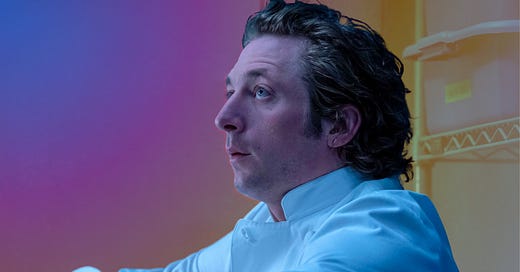




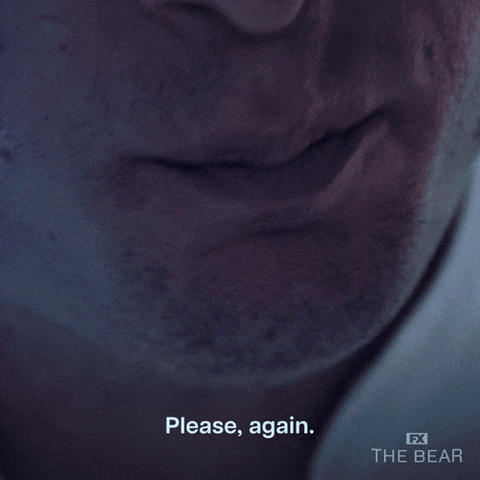
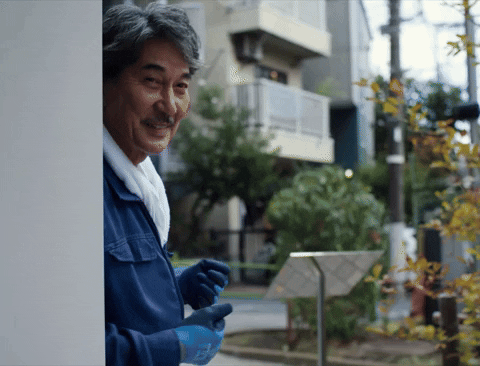
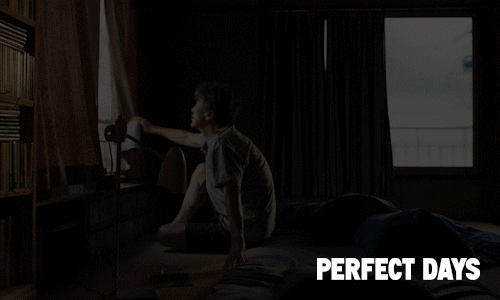



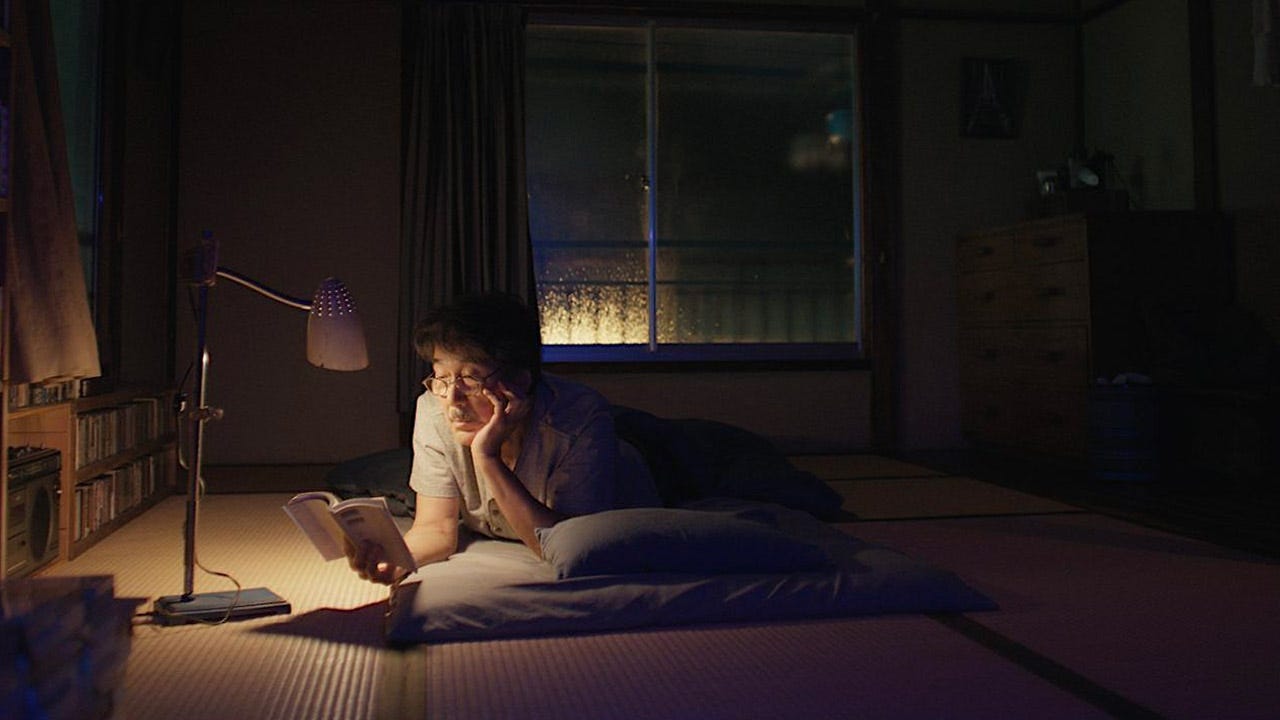


Perfect Days is such a fantastic ode to simplicity and how we can create meaning in our life beyond what we do for a living. I have a copy of the Welcome to Hyunma-Dong Bookshop and I feel it's a perfect read for autumn and your words have given me an urge to read it. Your reflections have brought to mind a book I read a while back and which explores the ambition question - There's No Such Thing as an Easy Job by Kikuko Tsumura. It's interesting how there's this current of slow living now coming from Japan and Korea, perhaps a pushback to decades of overachieving as a signifier of personal worth?
I LOVE The Bear. I’m really curious about the next season, because, as you wrote, season three kind of shows how dysfunctional Carmy‘s approach is. I wonder what the moral of the story will be.
The question about pursuing your passions or making your free time your priority is one I really resonate with. Lately, I crave recognition and stability. The problem with service jobs is they don’t pay well, but that’s probably in line with the acceptance of the simple life. I just realise that I want more. Is that selfish? I don’t want luxury, just safety.
I’m thinking about going for a stable/boring job, but I’m also afraid that this means I‘ll betray my values… I admire people who follow their passions but it’s so risky